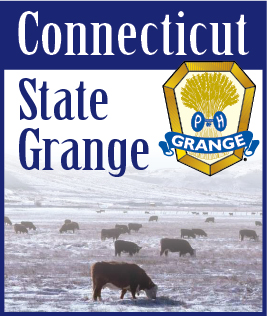| FEBRUARY 17, 2011 -- A local New Jersey group aims to save a farming community landmark by making it a money-making event venue.
Members of Grange’s Columbus, New Jersey chapter, the stewards of township property that once served as a social meeting place for the farming community, are focusing on ramping up efforts to market the two-story building as rentable event space. Once a hotspot for dances, talent shows and pageants, the Columbus Grange building at 88 Atlantic Avenue has generated little interest in recent years as rental and needs a host of maintenance upgrades.
Members fear the building, which is owned by the National Grange organization and hosts the chapter’s monthly meetings, may have to be sold to keep the chapter afloat. Compounding the challenge is a dwindling membership that once topped out at 400 and now hovers at just 32, according to Don Bassett, the chapter’s president.
“It’s pretty expensive to keep your building open with when it’s not being used,” said Bassett, a retired warehouseman. He and his wife, Millie, are 25-year members of the chapter, which will be 127 years old this year.
The Columbus Grange Revitalization Committee has formed to rejuvenate the building and the chapter in general. So far, the group has raised $2,100 from a beef-and-beer event in December and has planned a pancake fundraiser set for Feb. 19.
Committee member Kate Moran hopes to host such events on a regular basis to generate revenue, foot traffic, ideas and members.
“Our effort is to redefine what that space can do for the community. We want to bring in yoga classes, we want to bring in art shows. We want to host music festivals,” said Moran, who is joined on the committee by her her fiancé, Dan Wainwright, and grange member Becky Hatcher-Kafer.
Moran is also working on replacing an outdating mailing list with an email database and has also created a social networking page for the chapter at www.facebook.com/pages/Columbus-NJ-Grange.
A relatively new member of the Columbus chapter, Moran was enamored with the quaint building, which replaces a former grange that was destroyed in a fire and rebuilt in 1940, and the rural lifestyle in general. The Moorestown native moved to Mansfield two years ago at the behest of Wainwright, a lifelong resident from a family of dairy farmers.
Moran was dismayed to learn about the possible sale of the grange, which boasts a full-service kitchen, bathrooms on each floor, a dining area, and an upstairs stage. The building can be rented out for $200 a day.
“Our community is a good candidate for having a successful grange. We don’t have a library in town. We don’t have a community center in town,” said Moran.
The drawbacks are the heating, maintenance and insurance costs, which amount to about $8,000 a year, said Bassett.
The building’s costs were sustained for awhile by a church group that rented the building for weekly services, but it stopped doing so three years ago. Now there are no regular renters and only four events lined up for this spring.
“We’re running low on funds,” said Bassett’s wife, Millie.
The group’s challenges reflect those felt by the National Grange, a 144-year-old agricultural and rural community service organization also known as the Order of Patrons of Husbandry. Its officers meet annually to develop its legislative policy and to recognize accomplishments of its 300,000 members spanning 37 states, according to its website, nationalgrange.org.
At the organization’s annual meeting last November, President Ed Luttrell noted the changing nature of agriculture and the responsibility of citizens to understand its realities. A press release on the organization’s website includes excerpts of his speech: “The grange believes that community is the essential building block of our great nation. It is time that America considers exporting not just food, machinery, and the concept of our government, but also the time-proven ways of communities coming together to make changes,” said Luttrell.
Yet Moran and the Bassetts acknowledge the disconnect between community-rooted longtime grangers and younger generations with frenetic lifestyles have led to declining interest in grange values and membership.
Moran attributes it to a “lost sense of community.” Bassett said life gets in the way. “When they come home from work at night, most people are exhausted,” he said.
Locally, the Columbus chapter is one of only three in community granges in Burlington County; the others are based in Moorestown and Southampton. The Moorestown chapter sold its building a few years ago, Bassett said.
The Bassetts are hoping new energy will perk up a tired but beloved tradition. Of the new committee, Bassett says, “We’re behind them 100 percent.”
The chapter convenes on the second Friday of the month at 6 p.m. for a covered-dish meal and meeting. For information, call the Bassetts at 609-298-7518. |
